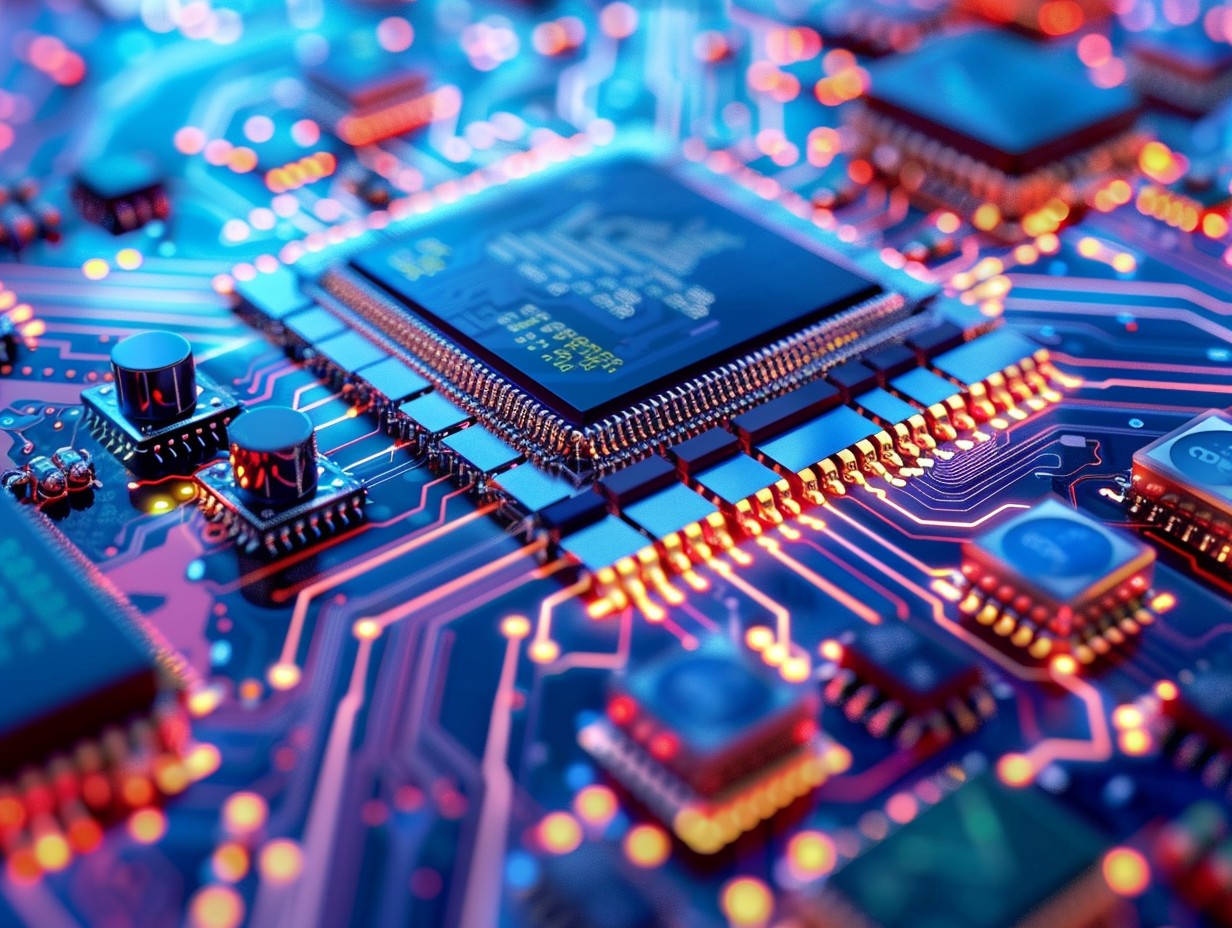Huawei AI chips are becoming increasingly popular in China. The company is using its chips in AI boxes, which is a growing trend in the Chinese market and is considered by prominent market analysts to help Huawei overtake Nvidia in the Chinese mainland market.
Huawei is emerging as a main supplier of locally manufactured AI chips in China. The company’s production capacity must be increased; this is a key component in expanding the artificial intelligence sector to fulfill demand.
Also read: Nvidia Stock Is Trading Above $1,146 as the Company Nears $3 Trillion
Huawei’s in-house developed 910B Ascend accelerators are widely adopted in different industry sectors across China. Nvidia’s increasing absence from the Chinese market due to US export restrictions has also helped Huawei to strengthen its hold.
Huawei Introduces New Ways of AI Development
The most common way of adopting Huawei’s 910B chips is through AI boxes. These boxes are a growing trend facilitating AI processing with single machines that embed AI accelerators, industry-standard algorithms, and pre-trained large language models. Different AI startups in China manufacture AI boxes to meet market demand.

Huawei has signed 12 AI startups to use its AI chips and other hardware with their AI models in the boxes, according to a Financial Times report. This new trend threatens AI cloud computing giants like Alibaba, Baidu, and Tencent. South China Morning Post quoted Russel Wu, general manager at TML, a networking gear startup who was previously with Intel’s Chinese arm, saying,
“The AI box provides a ready-to-use solution for entities including small companies and government, letting them cut costs and focus on fine-tuning large model-based services instead of developing models.”
According to Huawei’s estimates, the market for AI boxes (all-in-one machines) will reach $2.3 billion this year. Analysts suggest that the government market for AI boxes could reach $62 billion by 2027.
US Export Restrictions Force China to Self-Reliance
Since the United States implemented export restrictions on Nvidia and other advanced processor makers, their absence from the Chinese market has left a void that Huawei is filling rapidly. Previously, Nvidia had the major share of the market in China for AI processors. After the export curbs, it was restricted from supplying Chinese businesses with its powerful A100 and H100 processors.

Earlier this month, CNBC reported that the US government has revoked some licenses for supplying processors to Huawei. A US Department of Commerce spokesperson told the publication that,
“As part of this process, as we have done in the past, we sometimes revoke export licenses.”
To comply with the US government, Nvidia introduced a less powerful AI processor, H20, for the Chinese market. Comparatively, according to benchmark tests, Huawei’s 910B performs slightly better than the Nvidia H20. Huawei 910 B’s performance and the nationalization drive in China forced Nvidia to reduce its prices for H20 by almost 10%. This further strained the already struggling Nvidia in the Chinese market. Wu said,
“Huawei is taking the lead in China’s localization drive because of its technological abilities.”
Many Chinese AI vendors still prefer Nvidia’s top-of-the-line processors. However, their limited availability has forced them to lean towards Huawei, which is fast progressing in new technology development and innovation with government support. China is the third largest buyer of Nvidia chips, but Nvidia is now struggling to maintain its share due to geopolitical challenges.
Huawei Pour Resources Into Processor Manufacturing
Huawei’s focus will be on AI chips this year, according to observers, which is expected to reduce its resource allotment to its smartphone business, according to analysts. A Reuters report states that strong AI chip demand is forcing the company to slow its smartphone production. Huawei made strides with its 5G-enabled smartphones late last year, which it developed despite restrictions on access to advanced technologies by the US.
Also read: US Lawmakers Not Happy After Huawei Debuts AI Capable Laptop
The phone, Mate 60, featured an advanced processor developed in China. This angered US officials, who were further worried by Huawei’s recent debut of an AI-capable laptop. Huawei’s return to the smartphone market and the government-backed nationalization drive also dented Apple’s market share in the country. Apple’s share decreased by 13% as Huawei gained new customers in mainland China.
Huawei has not revealed any official sales figures for its AI chips. However, in a recent speech, Zhang Dixuan, head of the Ascend computing business of Huawei, said that the firm now has 40 hardware partners, 2900 AI application solutions, and 1600 software partners. Nvidia supplied 90% of the 500,000 AI processors sold in China last year, while Huawei only had a 6% market share. The political situation has now changed this scenario. Nvidia’s CFO, Colette Kress, said,
“Growth (in data center business) was strong across all regions, except for China where our data center revenue declined significantly following the US government export control regulations imposed in October.”
According to the company’s financial reports, one-fourth of Nvidia’s data center revenues are usually from China. According to new estimates from Nvidia, sales revenues from China are expected to be between 4% and 6%.
Cryptopolitan reporting by Aamir Sheikh





